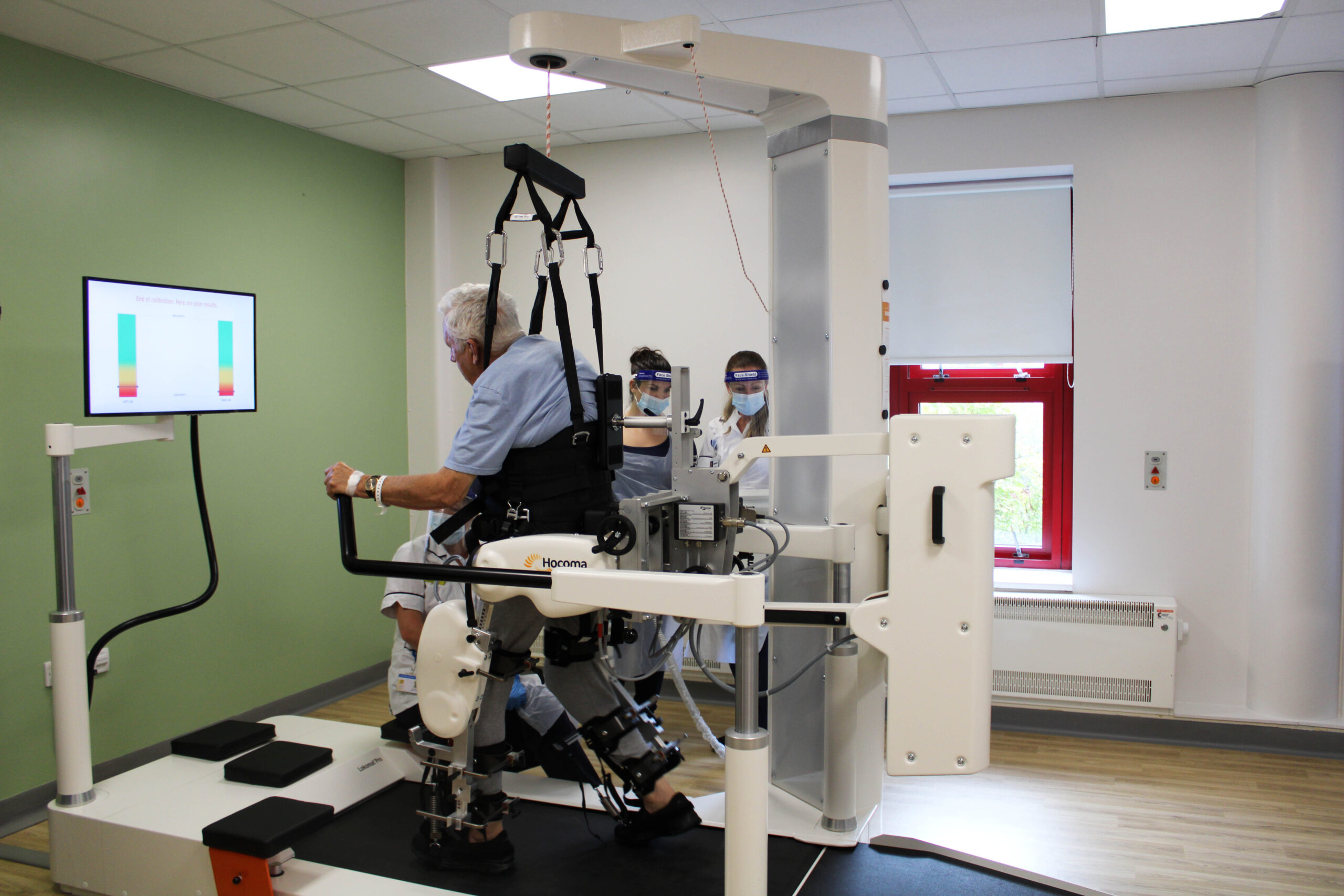Enhanced care coming for stroke patients in Dorset
 Specialist support services are being introduced in Dorset to help people recover from the debilitating effects of a stroke.
Specialist support services are being introduced in Dorset to help people recover from the debilitating effects of a stroke.
Ahead of World Stroke Day on Sunday (29 October), local NHS trusts have outlined the extra resources being made available to give people the best chance of making a full recovery.
New-look stroke units are on the way in the east and west of the county, while enhanced community rehabilitation services will ensure all local stroke patients have access to expert treatment tailored to their needs.
More than 100,000 people suffer a stroke in the UK every year. Strokes can leave people with partial paralysis, impaired speech, balance and mobility problems, and other life-changing impacts.
Acute hospital services are critical in the first 72 hours to maximise the patient’s chances of recovery but equally important is the rehabilitation follows.
In west Dorset, next year will see the introduction of a "hyper acute stroke service" at Dorset County Hospital, providing 24/7 acute stroke care for the first time.
Patients will be monitored by a team of stroke specialists on the new unit for up to the first 72 hours (or longer if required) until they are stable enough to be transferred to the hospital’s main stroke unit. More information is available at www.dchft.nhs.uk/service/stroke-unit/
And while stroke patients in north and west Dorset have previously been limited to two weeks of rehab support following discharge from hospital, a new-look community service means that people will receive specialist care to help meet their needs and achieve their goals as quickly as possible.
This care – provided by Dorset HealthCare – is available to people who have just had a stroke or those still struggling with the effects of a stroke in the past. And any GP, health professional or social care worker can refer people to the service.
Luisa Hardy, Dorset HealthCare’s adult community stroke and neuro services manager, said:
“This approach is in line with new national stroke guidelines, and is a huge step forward for people in north and west Dorset.
“People are not passed off between teams, but have their specific needs met by one team of occupational therapists, physios, speech therapists, nurses, psychologists and others who are specially trained in stroke care.
“While we have a dedicate stroke rehab unit at the Yeatman Hospital in Sherborne, our staff also support people in their own homes.”
Watch a short video clip about the new-look community service: https://youtu.be/74zDAvzBlwQ
Meanwhile, in the east of the county University Hospitals Dorset is expanding the stroke recovery unit at its Royal Bournemouth site.
This will increase the number of beds to 43, and give patients access to improved facilities and cutting-edge technology such as the Walkerbot – pioneering equipment which helps people relearn how to walk. The device is the only one of its kind in an NHS hospital in England, and is now in use at the Royal Bournemouth Hospital Stroke Unit – helping patients to take the thousands of steps needed a day to allow their brains to rewire during recovery. The aptly named Walkerbot appeal began in 2020 and thanks to generous donations from incredible individuals, local businesses and community supporters, the robotic device was funded by the charity in just 20 months.
Work towards preventing strokes also remains a priority for local NHS services. Dr Ben Oxley, GP Partner at Poole’s Adam Practice, said:
“I would encourage everyone to ensure they limit their chances of suffering a stroke by staying active and having regular blood pressure checks.
“High blood pressure is a major cause of strokes in adults, so it’s important get it treated promptly.”
For more advice on reducing your chances of suffering a stroke, visit https://nhsdorset.nhs.uk/adopt-healthy-habits-to-reduce-your-risk-of-stroke









